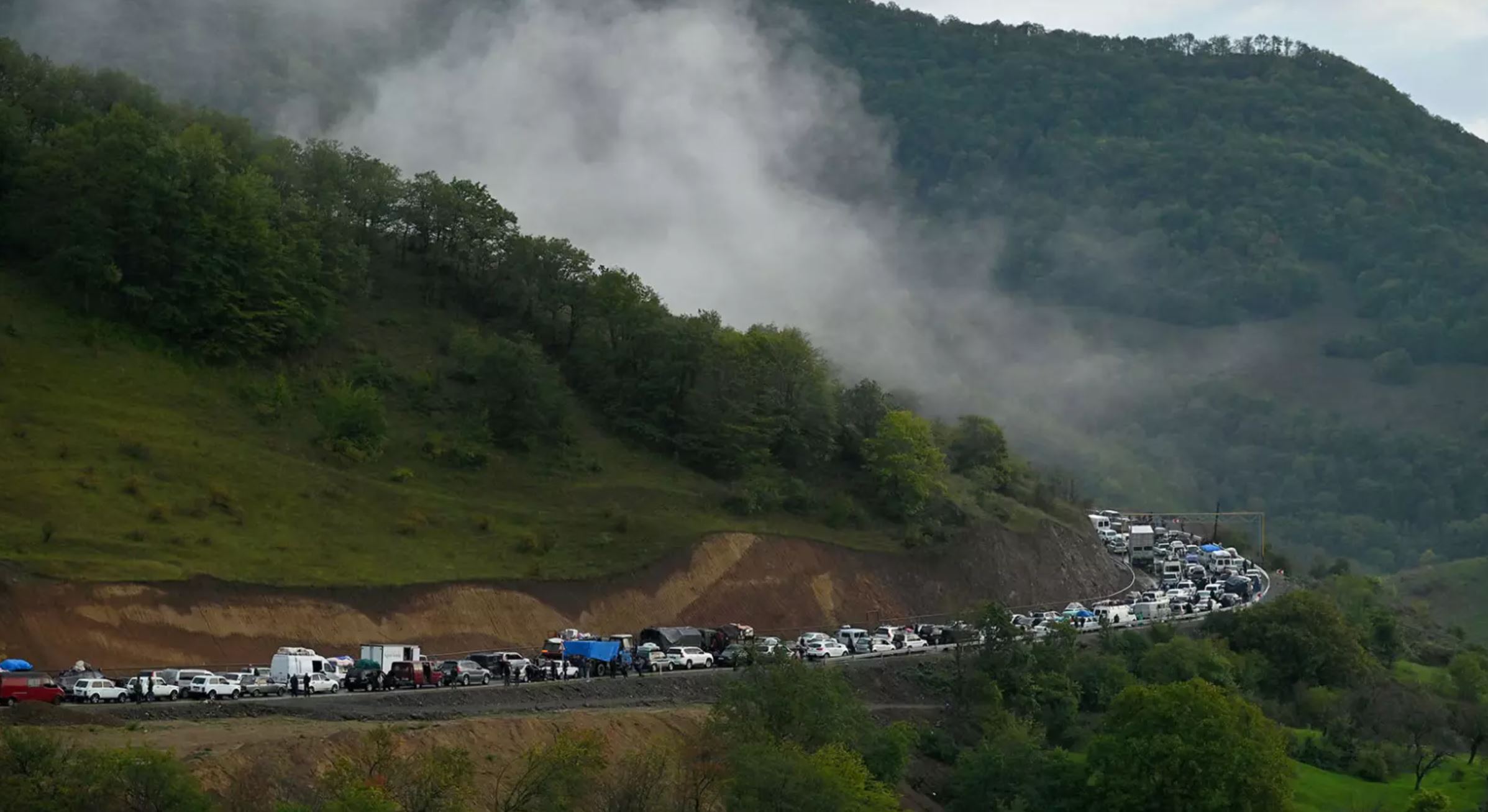In 2023, Azerbaijan continued to threaten Armenia’s existence – Freedom House
- (0)

Azerbaijan’s military continued to threaten the existence of the Republic of Armenia in 2023, Freedom House said in its latest Nations in Transit report.
“The Kremlin’s invasion of Ukraine in February 2022 was by no means the main cause of the Azerbaijani regime’s final assault on Nagorno-Karabakh in September 2023. Azerbaijani president Ilham Aliyev had long been explicit about his intent to erase the ethnic Armenian enclave’s de facto independence, having already seized some territory in a 2020 war that ended with a Russian-brokered cease-fire. Still, the Russian attack on Ukraine opened the door to the conquest, as the Kremlin’s attention and resources were diverted from peacekeeping duties in the Caucasus, and the democratic world was similarly absorbed with its efforts to support Kyiv,” the report reads.
“Baku set the stage for its September offensive with a months-long blockade that deprived Nagorno-Karabakh’s people of essential goods. When the military assault finally came, local defense forces quickly agreed to lay down arms, and the local government was abruptly dissolved. Russia’s peacekeepers made no effort to intervene.”
The sudden collapse of the Karabakh’s government and defenses prompted the entire population of 120,000 ethnic Armenians to flee for their lives. Azerbaijani troops opened a route for their exit, which made it easier for Baku to take complete control of the land and facilitated what amounted to ethnic cleansing. Many of the refugees had already been displaced multiple times in the last four years.
“Meanwhile, Azerbaijan’s military continued to threaten the existence of the Republic of Armenia, having occupied slices of that country’s territory after multiple clashes in recent years,” the report says.
“On the domestic front, President Aliyev moved quickly to capitalize on his triumph in Nagorno-Karabakh by further consolidating power and bolstering his legitimacy. In December, he called for a snap presidential election in February 2024, moving up the election date by a full year. At the same time, his regime unleashed yet another crackdown on the country’s already beleaguered independent media and political opposition, claiming that it was breaking up a network of US spies.
“Aliyev’s victories—political and military—may have simply whetted his appetite. His inauguration speech included renewed demands for additional Armenian territory. Absent any credible deterrents imposed by the United States or the EU, there is an obvious potential for more authoritarian aggression in the Caucasus. Moscow has effectively abdicated as the area’s security guarantor, leaving Armenia in a race against the clock to secure new alliances in the democratic world.
“In the South Caucasus, Armenia’s democratization efforts were adversely affected by the Azerbaijani regime’s brutal offensive in Nagorno-Karabakh, which prompted the more than 120,000 ethnic Armenians living there to flee west. They have now settled mostly in Armenia itself, where the government is attempting to address their humanitarian needs while also defending its own territory, consolidating power amid domestic criticism, and responding to the demands for better governance that sparked the country’s 2018 revolution.”



















